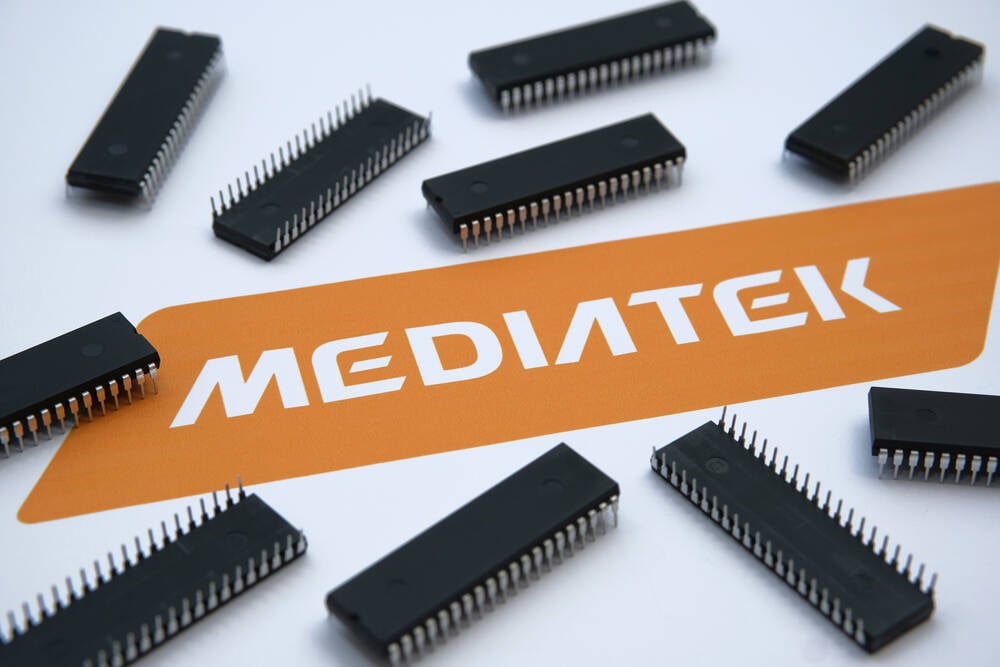US DoJ Wades Into Realtek Lawsuit That Accuses MediaTek Of Patent Abuse

Taiwanese chip firm MediaTek is under scrutiny with the US Department of Justice (DoJ) taking an interest in an antitrust dispute with semiconductor compatriot Realtek.
MediaTek, a fabless chip company targeting smartphones, wireless comms, and other applications, is the subject of a lawsuit from Realtek launched last year, which alleges that its rival conspired with "patent trolls" to file meritless infringement cases against it.
Those patent infringement cases centered on chips used in television sets, for which MediaTek is understood to have in excess of a 70 percent market share.
In a court filing [PDF] on October 4, the DoJ says that it has submitted a Statement of Interest on behalf of the United States to underscore the "anticompetitive potential and the unprecedented nature" of the litigation bounty agreement claimed by Realtek in its complaint.
"Courts reviewing the underlying patent claims have already expressed alarm upon seeing the bounty provision, stating it is improper and should be discouraged as a matter of public policy," the document states.
Realtek alleged in its original complaint that MediaTek was paying a patent assertion company a "secret bounty" to file patent litigation cases in the US courts, with the intent of harassing Realtek and causing it to divert resources away from product development.
The chip designer named Future Link Systems LLC as the patent assertion company in question, as well as the outfit's parent company, IPValue Management, in the complaint, labeling the pair as "patent trolls."
Realtek alleged that it discovered this arrangement during the discovery process relating to one of the patent infringement cases, when it uncovered a license agreement between MediaTek, IPValue, and Future Link that included the litigation bounty provision.
The firm alleges that following the bounty agreement, the patent assertion companies filed six baseless infringement suits, four of them against Realtek and a further two against Amlogic, another TV chip competitor.
However, the defendants filed a motion to dismiss the case, claiming that the Noerr-Pennington doctrine barred Realtek's claims, arguing that the entire allegedly anticompetitive conduct of the companies is "incidental to protected petitioning activity."
- Cloudflare beats patent troll so badly it basically gives up
- AWS must fork out $30.5M after losing P2P network patent scrap
- Open source orgs strengthen alliance against patent trolls
- IBM scores $45M zinger from Zynga in patent wringer
This is where the DoJ gets involved: Its filing states that Realtek's complaint sufficiently alleges that the serial lawsuits filed by the patent assertion companies are a sham. If true, this would mean that the bounty agreement does not merit Noerr-Pennington protection, or so the argument goes.
Even if the patent cases are not shams, however, the bounty agreement is "not petitioning or incidental to petitioning," and the DoJ warns that "exemptions from the antitrust laws should be construed narrowly," calling for hesitation before applying these on a motion to dismiss.
Going further, the DoJ filing states: "If defendants' arguments are accepted, Noerr-Pennington would be improperly applied to protect well-pleaded serial sham petitioning activity from discovery and exempt anticompetitive activity unrelated to petitioning. A ruling in defendants' favor would improperly expand Noerr-Pennington to protect run-of-the-mill anticompetitive activity."
The filing concludes: "For the reasons above, we urge this Court (i) to hold that bounty provisions such as the one at issue should be scrutinized as a way to raise rivals' costs; and (ii) to avoid applying the Noerr-Pennington doctrine to protect the alleged anticompetitive bounty provision from antitrust scrutiny."
In a statement to The Register, a spokesperson for Realtek commented: "Realtek filed this case to fight against the abuses of patent trolls and a conspiring monopolist and the costs they impose on TV consumers everywhere. The DoJ's Statement of Interest confirms Realtek's case should move forward to discovery.
"The DoJ's statement makes clear that large companies cannot secretly hire patent trolls as litigation hit men to harm their smaller competitors. The United States' interest in this case is the same as Realtek – to protect consumers from abusive and anticompetitive practices."
We asked MediaTek and IPValue Management for their reaction, and will update with any response. ®
From Chip War To Cloud War: The Next Frontier In Global Tech Competition
The global chip war, characterized by intense competition among nations and corporations for supremacy in semiconductor ... Read more
The High Stakes Of Tech Regulation: Security Risks And Market Dynamics
The influence of tech giants in the global economy continues to grow, raising crucial questions about how to balance sec... Read more
The Tyranny Of Instagram Interiors: Why It's Time To Break Free From Algorithm-Driven Aesthetics
Instagram has become a dominant force in shaping interior design trends, offering a seemingly endless stream of inspirat... Read more
The Data Crunch In AI: Strategies For Sustainability
Exploring solutions to the imminent exhaustion of internet data for AI training.As the artificial intelligence (AI) indu... Read more
Google Abandons Four-Year Effort To Remove Cookies From Chrome Browser
After four years of dedicated effort, Google has decided to abandon its plan to remove third-party cookies from its Chro... Read more
LinkedIn Embraces AI And Gamification To Drive User Engagement And Revenue
In an effort to tackle slowing revenue growth and enhance user engagement, LinkedIn is turning to artificial intelligenc... Read more

